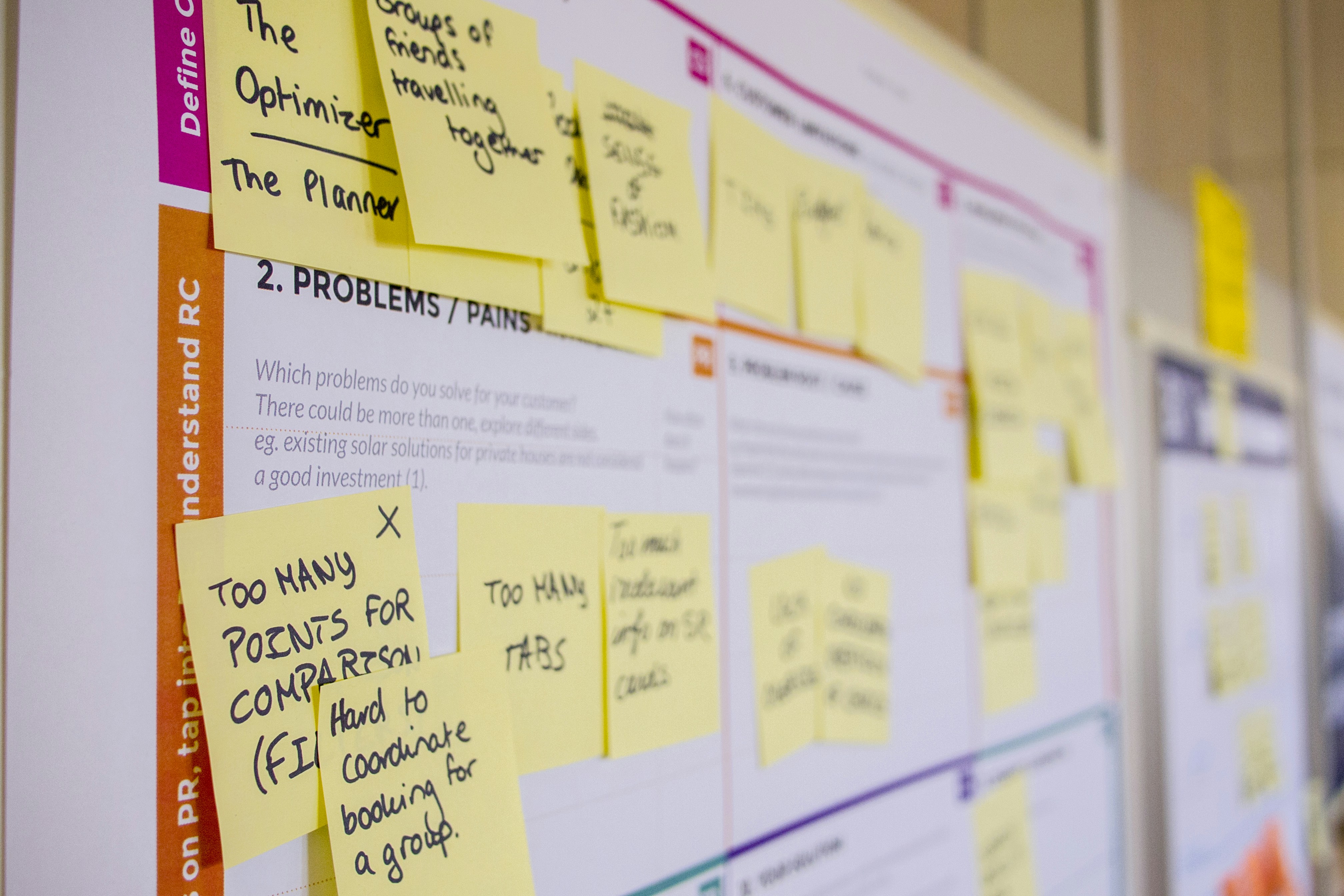< Back
An In-depth Guide On How To Use Google Scholar
Declan Gessel
May 19, 2024
Google Scholar is a valuable tool for academics, students, and researchers. It offers free access to a wide range of scholarly articles and research papers that may not be easily accessible through other sources.
Using Google Scholar effectively can help you find relevant and credible sources for your research projects, papers, or essays. Stay tuned to learn how to navigate Google Scholar like a pro, and how to identify credible sources using the CRAAP test.
Table Of Content
What Is Google Scholar?

Google Scholar is a free online tool that helps you find research papers, articles, books, and other academic sources written by professionals on almost any topic. Think of it like having an all-in-one source for finding reliable information. Here's why Google Scholar is crucial:
Massive Library
Google Scholar has an enormous collection of academic stuff. It searches through millions of sources from universities, professional organizations, publishers, and online archives.
Smart Search
It doesn't just throw everything at you. Google Scholar ranks results based on how important and relevant they are to your search. It considers how often other researchers have used the source (citations) and how well-known the author is.
Finding the Full Story
Sometimes research articles are locked behind paywalls, but Google Scholar can often help you find free versions online or through your library.
Related Reading
• how to know if an article is peer reviewed
• semantic scholar
• what are scholarly sources
• credible sources for research
• craap method
• evaluating sources
• 10 examples of reliable sources
• academic search engines
Getting Started With Google Scholar

A. Mastering the Google Scholar Search Bar and Search Options
Successful academic exploration begins with understanding how to use the Google Scholar search bar and the available search options. The search bar is the starting point for your journey. Here, you can enter keywords or phrases related to your topic of interest. Google Scholar is smart enough to interpret even broader search terms.
However, you can use the search options near the search bar for more precise results. These options may include filters by publication date (for focusing on recent research) or the ability to search by a specific author's name.
B. Navigating the Side Menu for Refining Search Parameters
One of the crucial components of the Google Scholar interface is the side menu on the left-hand side of the screen. Think of it as a sophisticated sorting tool in a library. It allows you to refine your search results with precision. You can narrow your findings using filters based on publication type (articles, books, etc.) and even search within specific academic disciplines like medicine or history.
C. Leveraging the "My Library" Section for Managing Saved Articles
As you delve deeper into your research, you'll come across articles that are pertinent to your study. Google Scholar offers the "My Library" section for easy access to these articles in the future. This personalized research repository acts like a virtual filing cabinet, allowing you to save articles effortlessly for future reference.
Adding articles to "My Library" will enable you to revisit them whenever necessary, making your research workflow more efficient. Access "My Library" through a dedicated menu at the top of the page.
Related Reading
• How to Find Peer Reviewed Articles on Google Scholar
• ChatPDF Alternative
• Best Databases for Research
• Google Scholar Alternative
• Best AI for Writing Research Papers
• Peer-Reviewed Sources
• How to Find Sources for a Research Paper
• How to Tell if a Source Is Scholarly
• Best Websites for Research Papers Free
• Databases Like JSTOR
• Scholarly vs Popular Sources
• How to Find Research Papers
• AI That Cites Sources
• The CRAAP Test
• CRAAP Analysis
• What Is a CRAAP Test?
• CRAAP Criteria
• What Is the CRAP Test
• CRAP Test for Sources
• How to Determine Credibility of a Source
• CRAP Test English
• How to Evaluate a Source for Credibility
How To Use Google Scholar Effectively

Strategic Keyword Utilization
When utilizing Google Scholar, it is crucial to employ targeted keywords that directly relate to your research topic. This can help yield more accurate and relevant results. Avoid using complete sentences in the search bar, as Google Scholar prioritizes individual keywords for optimal search outcomes.
Harnessing the Power of Boolean Operators
By using Boolean operators such as AND, OR, and NOT, researchers can construct intricate search queries for pinpoint accuracy. For instance, searching for "climate change AND policy" can retrieve results that address both aspects. Mastering Boolean operators unlocks a new level of search precision.
Phrase Searching for Exact Matches
Encase phrases in quotation marks to find articles where specific terms appear together in the title, abstract, or full text. This technique is valuable for searching for proper names, technical terms, or specific book titles.
Filtering by Publication Date or Author Affiliation:
Refining search results by utilizing the date filter to focus on recent research or specifying the author's name to find articles written by a particular professional can enhance the relevancy of the search results.
Using Advanced Search Functionalities
Discipline-Specific or Publication-Specific Searches:
Delve deeper by conducting searches within specific academic disciplines or scholarly publications. This ensures that the results obtained are highly relevant to your field.
Excluding Unwanted Terms
Google Scholar allows users to exclude specific terms using the NOT operator. This helps streamline the research process by eliminating unwanted noise from the search results.
Customizing Search Results
Tailor search results based on personal preference. Google Scholar offers sorting options such as relevance, publication date, or the number of citations an article has received. This empowers users to prioritize the most impactful research within their field.
Jotbot is your personal document assistant. It does AI note-taking, AI video summarizing, and AI citation/source finding. It also writes AI outlines for essays and even writes entire essays with Jotbot’s AI essay writer.
Join 500,000+ writers, students, teams, and researchers worldwide to write more, write better, and write faster with Jotbot. Write smarter, not harder, with Jotbot. Start writing for free with Jotbot today—sign in with Google and get started in seconds.
Why Is Google Scholar Better Than Google For Finding Research Papers?

Google Scholar is a specialized search engine for scholarly articles, making it an invaluable resource for academics, students, and researchers. It has a leg up on Google when it comes to researching academic content.
Intuitive Interface
Firstly, Google Scholar has an intuitive interface that is similar to regular Google, which means that users can quickly adapt to searching for academic articles and papers without much of a learning curve. This helps to save time that would otherwise be spent navigating new interfaces.
Specialized Functions
Secondly, Google Scholar provides specialized functions tailored to academic research. For example, it can generate citations in formats like MLA and APA, saving users time formatting references. It also integrates with reference management software, streamlining the entire research process. Additionally, the citation tracking feature in Google Scholar enables users to explore how a particular paper has shaped scholarly conversation on a topic.
Full-Text Access
Google Scholar also aims to provide full-text access to articles wherever possible, even searching for free versions in online repositories. This is a great help, especially when some content is behind paywalls or subject to subscriptions.
Integration with Institutional Libraries
Lastly, Google Scholar can be integrated with institutional libraries. Users connected to an academic or research institution can link Google Scholar to their library subscriptions. This feature ensures that users can access readily available articles through their institution, expanding their reach within the library's resources.
Evaluating the Credibility of Scholarly Articles
Ensuring the credibility of sources is vital to the strength of research. It bolsters the foundation of my arguments, guards against misinformation, and enriches my understanding of the subject matter.
Author Expertise and Institutional Affiliation
Investigating the author's background and institutional affiliation provides insight into their expertise and credibility. Recognized professionals in the field lend authority to their work, benefiting the reliability of the research.
Reputable Publication Source (Peer-Reviewed Journals)
Publications in peer-reviewed journals are subjected to rigorous reviews by professionals in the field. This process upholds academic standards, ensuring the reliability and credibility of the research.
Currency of Information (Publication Date)
Considering the publication date of articles is essential. While seminal works offer historical context, prioritizing recent research is crucial for topics that are continuously evolving.
Methodology and Research Design Employed
Evaluating the research methodology used by the author is critical. Ensuring alignment with the research question, soundness, and lack of bias in the research design is important for reliable research.
Citations and References
A comprehensive list of citations and references showcases the author's reliance on reputable sources. Paying attention to the quality and types of references helps determine the credibility of the research.
Write Smarter With Jotbot: Start Writing for Free Today

Jotbot is a personal document assistant that provides AI note-taking, AI video summarizing, AI citation/source finding, AI outlining, and AI essay-writing services. With Jotbot, you can join over 500,000 writers, students, teams, and researchers worldwide to enhance your writing skills, productivity, and efficiency.
AI Note-Taking with Jotbot
Jotbot offers AI note-taking services that allow you to organize your ideas, thoughts, and research findings efficiently. You can input your notes, and Jotbot will help you categorize, summarize, and structure them for easier access and reference. This feature benefits students, writers, and researchers who must analyze and synthesize large amounts of information.
AI Video Summarizing with Jotbot
Jotbot provides AI video summarizing services that enable you to summarize lengthy video content quickly and accurately. You can input the video URL, and Jotbot will generate a concise summary that captures the video's main points. This feature benefits students, writers, and researchers who need to extract key information from educational, training, or research videos.
AI Citation/Source Finder with Jotbot
Jotbot offers AI citation/source-finding services that help you locate relevant sources, references, and citations for your writing projects. You can input specific keywords or topics, and Jotbot will search online databases, libraries, and repositories to identify credible sources that support your arguments and claims. This feature benefits writers, students, and researchers who must strengthen their arguments with evidence-based sources.
AI Outlining with Jotbot
Jotbot provides AI outlining services that help you structure your writing projects systematically. You can input your ideas, arguments, and evidence, and Jotbot will generate a hierarchical outline that organizes your content logically. This feature is beneficial for writers, students, and researchers who need to outline their essays, research papers, reports, or presentations before drafting the final document.
AI Essay Writing with Jotbot
Jotbot offers AI essay writing services that help you generate high-quality essays quickly and efficiently. You can input your essay prompt, and Jotbot will analyze the requirements, conduct background research, and draft a well-structured essay that meets academic standards. This feature benefits students, writers, and researchers who need assistance writing essays on various topics and subjects.
Related Reading
• How to Find Sources for an Essay
• Finding Sources
• Types of Scholarly Sources
• Are Blogs Scholarly Sources
• How to Find Scientific Articles
• Sourcely AI
• Vetting Sources
• CRAAP Test Generator
Write more, better, faster.
Your personal AI document assistant












